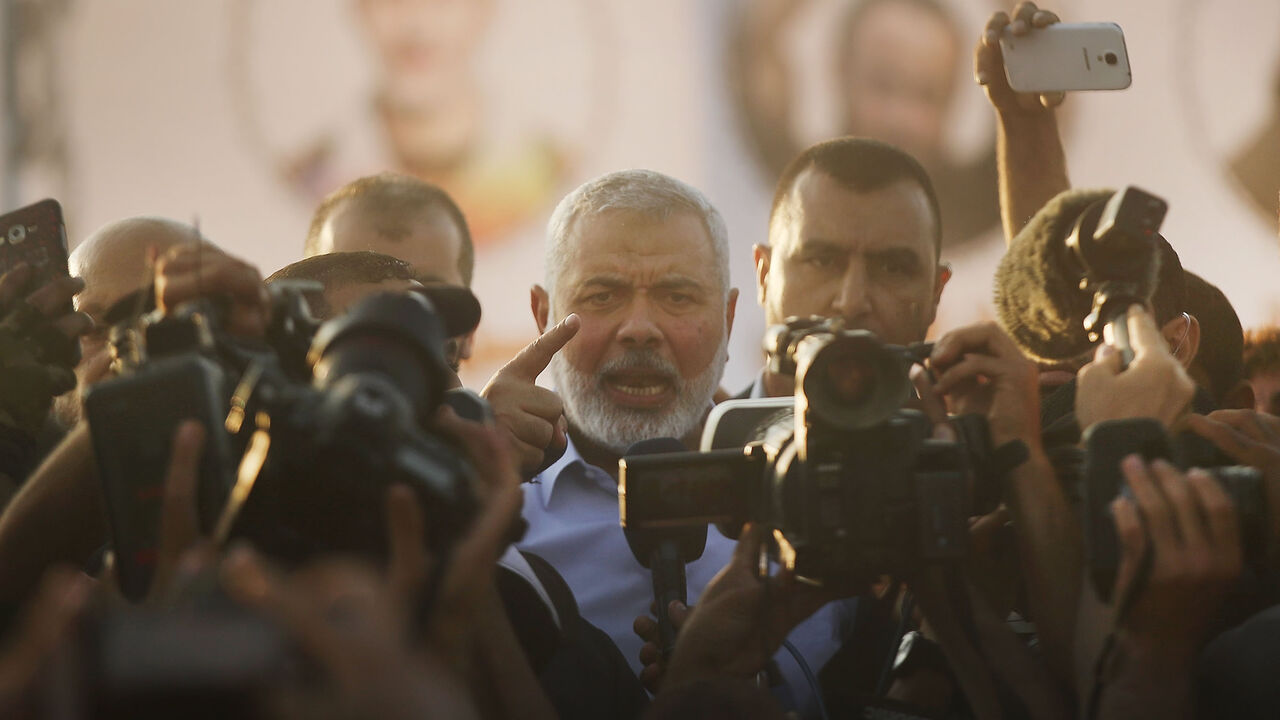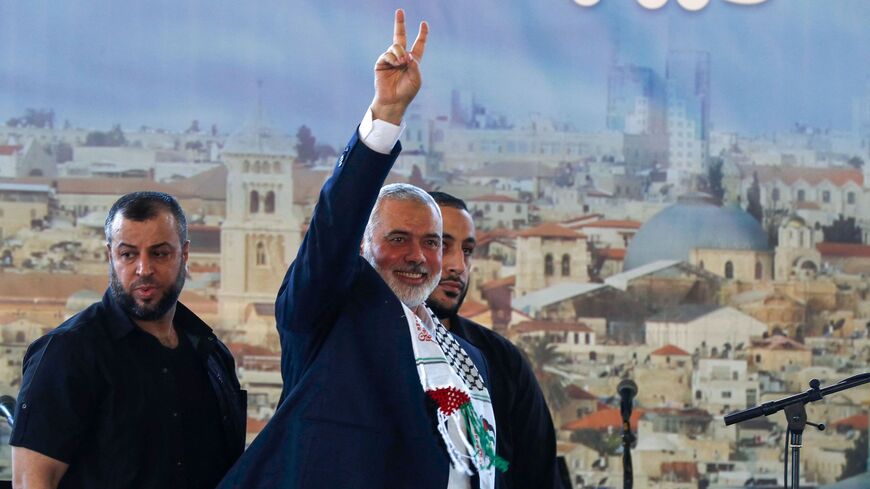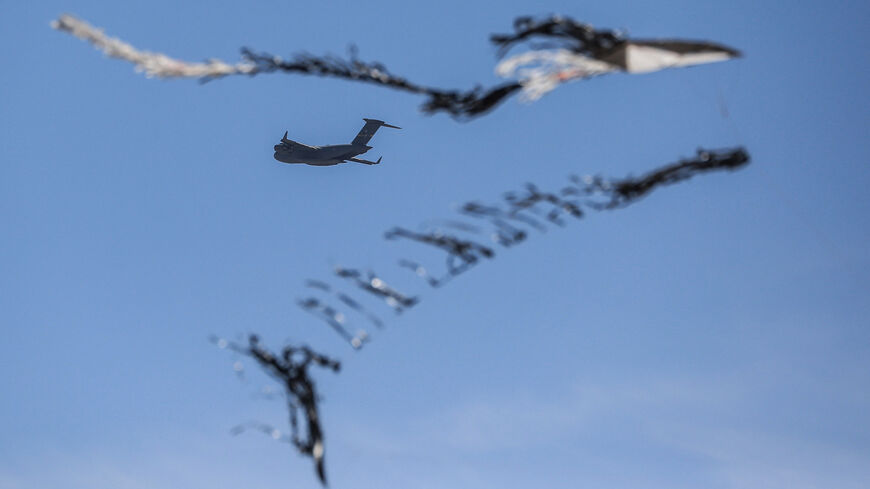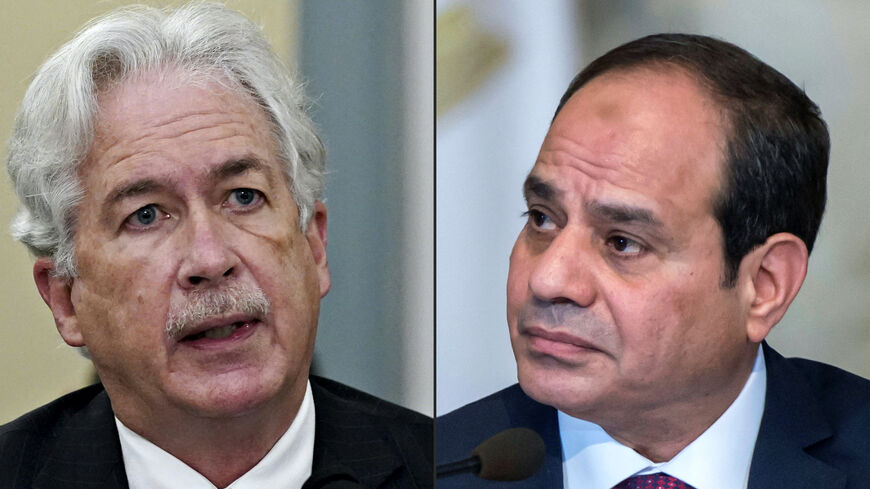Hamas’ Haniyeh heads to Iran for second time since Gaza war
Haniyeh's visit comes one day after the UN Security Council passed a resolution calling for a cease-fire in Gaza.

Hamas leader Ismail Haniyeh arrived in Tehran on Tuesday at the head of a high-level delegation, on his second visit to Iran since the Israel-Hamas war in the Gaza Strip erupted in October.
Haniyeh, who heads Hamas’ political bureau, will hold a series of meetings with Iranian officials to discuss the ongoing developments in the Gaza Strip and the Palestinian cause, the Hamas movement said in a statement.
An unnamed Hamas source had told the Saudi-owned Asharq News website that Haniyeh will stay in Iran for two days, where he will meet with Iranian President Ebrahim Raisi and Foreign Minister Hossein Amir-Abdollahian as well as other officials. According to the source, the discussions will focus on the situation in Gaza in light of the ongoing war.
Haniyeh’s last visit to Tehran was in November, when he met with Iran's Supreme Leader Ayatollah Ali Khamenei to brief him on the developments in the Gaza Strip.
Iran, which backs Hamas, has been accused of greenlighting Hamas’ cross-border assault on southern Israel Oct. 7, which prompted the Israeli army to unleash a major air, sea and ground campaign in Gaza.
The Islamic Republic has denied any role in coordinating the attack.
Since October, Iranian proxies in the region, including the Lebanese Hezbollah, have launched repeated attacks against Israeli and US targets in a show of solidarity with Hamas and the Palestinian people.
Haniyeh’s trip on Tuesday comes one day after the UN Security Council adopted a resolution calling for an “immediate” cease-fire in the Gaza Strip during the Muslim holy month of Ramadan — which ends in two weeks — and the “unconditional” release of the remaining hostages held by Hamas inside the enclave.
اسماعیل هنیه، رئیس دفتر سیاسی حماس دقایقی قبل برای دیدار با حسین امیرعبداللهیان وارد وزارت امور خارجه شد. pic.twitter.com/s2qOquc1Cf
— Fatemeh Kalantari | فاطمه کلانتری (@Fa_Kalantari) March 26, 2024
Hamas welcomed the resolution on Monday, stressing in a statement the need to reach a permanent cease-fire that would see the withdrawal of all Israeli forces from Gaza and the return of the displaced to their homes.
The Palestinian movement further expressed its readiness to engage in an immediate prisoner swap to release all hostages and Palestinian prisoners held in Israeli jails.
The resolution was also praised by Iran as a positive, but insufficient step.
“A more important step than adopting this resolution is an effective action to implement it,” Foreign Ministry spokesman Nasser Kanaani said in a statement on Monday.
He also called for the end of Israeli attacks in the Gaza Strip and the West Bank, the lifting of the Israeli siege in Gaza and the reopening of all border crossings with the enclave to allow the entry of aid.
At least 32,333 Palestinians, mostly women and children, have been killed and over 74,694 others injured in Gaza since October, according to the Gaza-based Health Ministry. The war has also forced more than 1.7 million people out of their homes, according to the United Nations agency for Palestinian refugees, UNRWA. Meanwhile, the humanitarian situation is quickly deteriorating amid a looming famine and the collapse of the health sector.
In Israel, Hamas militants killed nearly 1,200 people and took more than 240 others hostage during their October assault. The group has released a total of 110 hostages, and 240 Palestinian prisoners held in Israeli jails were freed during a brief seven-day truce late last November. Israel believes 136 hostages remain inside Gaza, including several who are said to have been killed since the offensive began.






